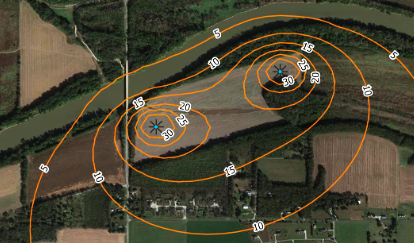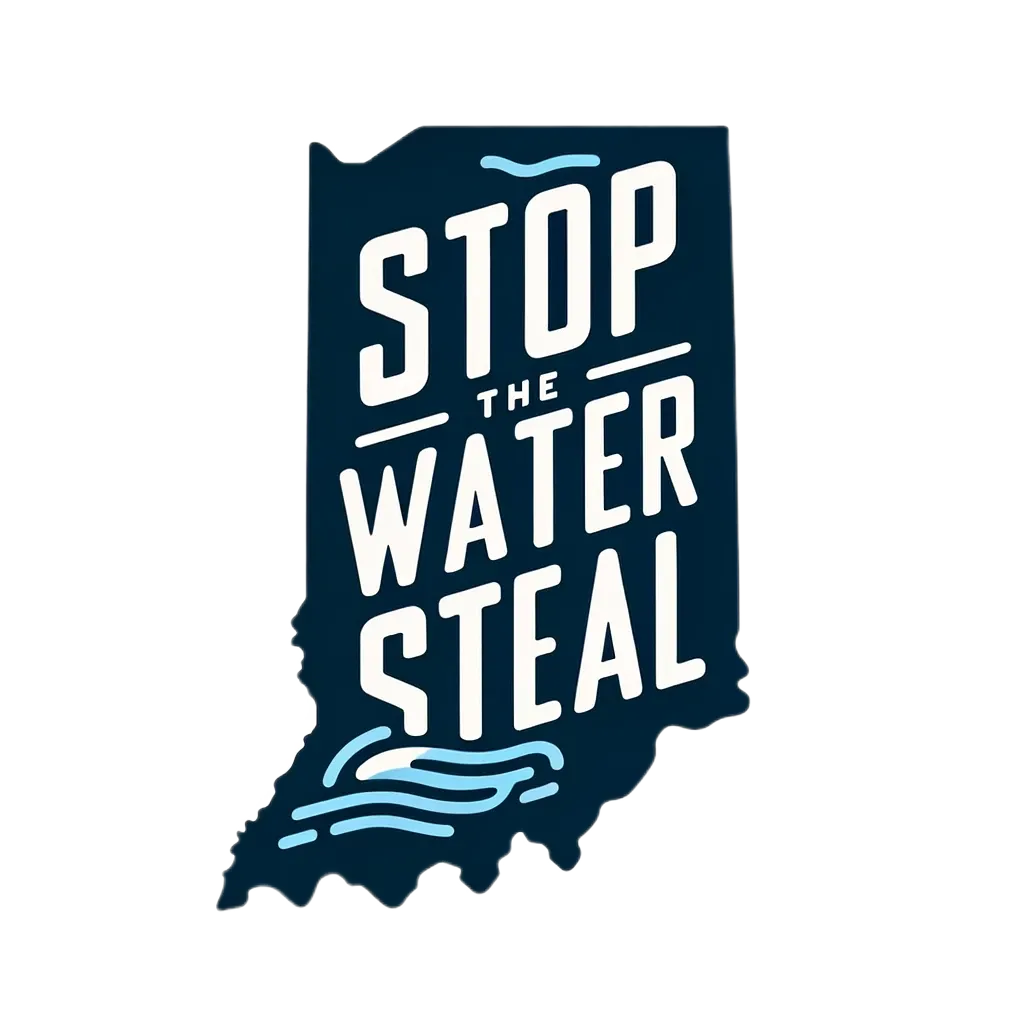Well Monitoring Beginning
*** IF YOU HAVE A WELL and live within ~ 5 miles of the Granville Bridge, this is for you.**** From Jody Tishmack: Hello Everyone, I'm reaching out to invite you to participate in a large scale water monitoring program, and to pass the word to others.

*** IF YOU HAVE A WELL and live within ~ 5 miles of the Granville Bridge, this is for you.****
From Jody Tishmack:
Hello Everyone, I'm reaching out to invite you to participate in a large scale water monitoring program, and to pass the word to others. A small group of us have purchased a monitoring device and will be starting to read water levels in our private wells. We are working with Dr. Marty Frisbee, a hydrologist at Purdue. Marty is working on a plan to study water levels in the aquifer south of the Wabash near the Granville Bridge, where LEAP is proposing to take billions of gallons of water a year to Lebanon. I also want to make people aware of local development plans for the area near the Granville Bridge. I've attached two figures. One is the map showing what Intera thinks will be the maximum drawdown (decline in water table) if pumping for LEAP proceeds. The second (see next post) is an image from Beacon showing new parcels approved for home construction. You'll notice there has been a significant number of new building sites zoned by the county. Every new home will add another private well and septic system to this area. I wonder if the potential buyers realize how these sites will be impacted if plans for the LEAP water removal move forward?
We need to start gathering information on water levels now because NO ONE else is doing it. There has been no indication that the ground water study being done by the Indiana Finance Authority is looking at water levels in this area. We were told to register our well with DNR so that they would start monitoring water levels. Sadly, DNR has done nothing to monitor our wells. (I registered our well a year ago and it has not been tested by DNR). Why do we need to do this? According to Indiana State laws if a high production well causes harm to previous small volume well owners they would be entitled to some form of remedy. Remedy usually entails digging a deeper well, lowering the well pump, or connecting the home to a different source of water. (Remedy doesn't mean that they will pay your water bill). There is no remedy for significant water users such as farmers who irrigate. The reason we need to collect this information is because it is up to the existing well owner to show evidence of harm and proof that the harm was caused by any new wells.
We have been told that IEDC and now IFA are going to study our aquifer to determine if it can support high volume extraction. Thus far the testing has not included monitoring our private wells. And there is no information on what IFA is doing to study our aquifer's capacity. It's clear that if we want to protect our groundwater it's up to us to collect the information ourselves.
With this in mind, we are currently putting together a larger monitoring plan and inviting others who may be impacted to participate. If you or anyone you know is interested in having your well's water level tested, please let me know. We are also very interested in having farmers' participation. Intera was quick to blame farmers for sediment issues some people experienced during last summer's pumping test. I think it's important that farmers know how irrigating impacts water tables during the summer, and how quickly the aquifer recovers. Farmers mainly pump in July and August and most irrigation wells have a capacity of 2 million gallons per day (far short of the 100 million gallons per day Intera claims is possible). This summer is forecast to be hot and dry and farmers will likely need to use irrigation. We've had above normal winter precipitation so now would be a good time to measure current static water levels in private wells, compare them with late summer or early fall, and determine how irrigation impacts the aquifer. Removing 100 million gallons of water over the course of several months would be a good test of how the aquifer responds to pumping and how long it takes water levels to recover.
We need this type of information in order to better understand what is currently happening in our aquifer. I will attach the Intera summary from their pumping test last year (see following post). They concluded that our aquifer has abundant water for economic exploitation. Mayor Gentry of Lebanon says that Lafayette residents shouldn't think of the aquifer as "our water" because it belongs to the State and anyone who owns the land can take as much as they want. Our current State laws won't protect our water rights. If someone takes more water than the aquifer can supply, all of us who rely on the aquifer for water are harmed but there is no legal way to stop them even if they were pumping the aquifer dry. If our wells to go dry, "remedy" can include hooking your home to a pipe and selling you back the same water they are taking from under our feet. If we are going to claim that our aquifer is more limited than they claim, we need to look now and find out the truth. And we need to pass legislation protecting our local water rights.
Please let me know if you would like to be added to our monitoring plan. I just need your name, address, and a contact number. It's helpful if you have the well driller's log for your well but not critical. You are welcome to pass this message to others whom you think might be interested.
Jody Tishmack, Soilmaker
(contact info@stopthewatersteal.org for Jody's contact information)
